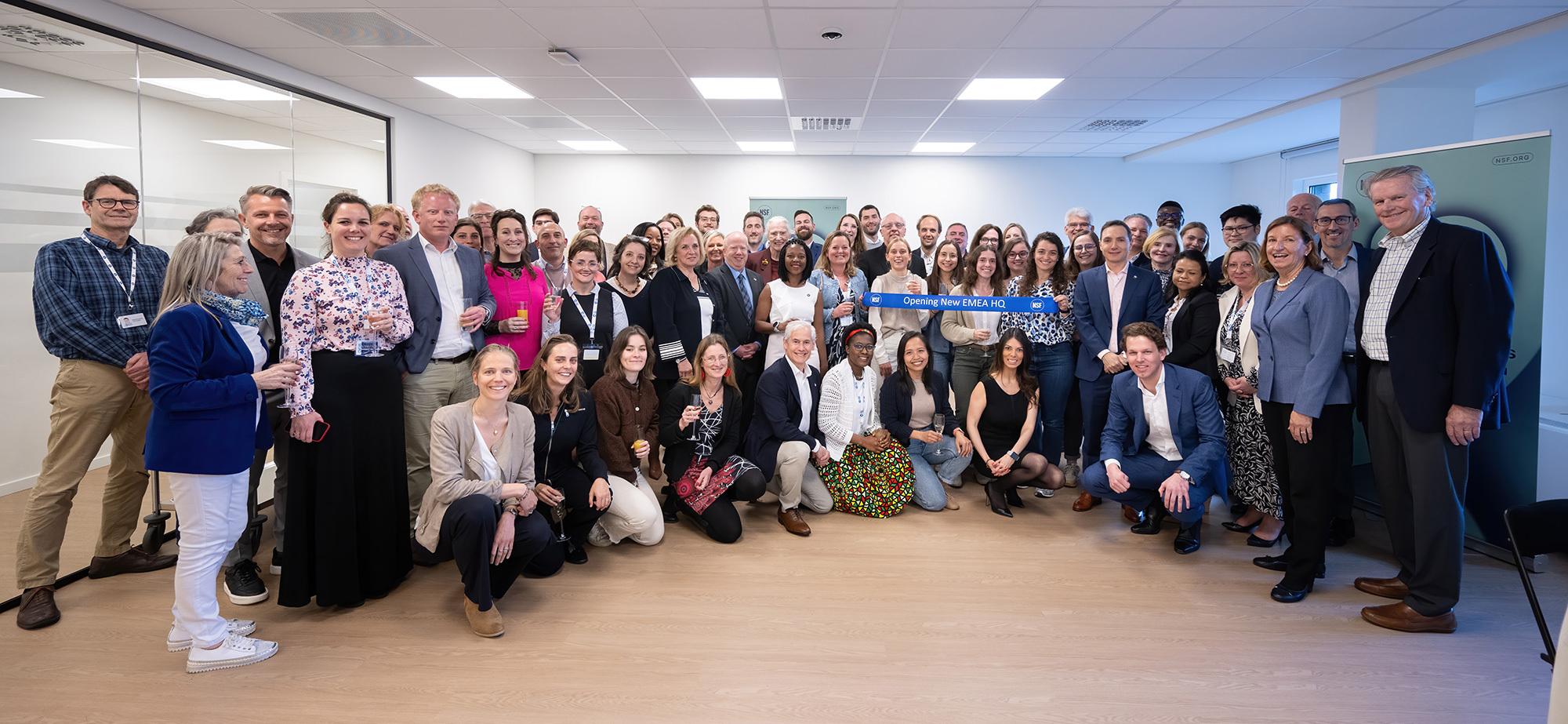Water Treatment Chemicals: An Overview of Regulatory Requirements

Ensuring that your water treatment products meet relevant standards helps end-users be confident of a cleaner, safer water supply. Regional requirements vary, but here is a summary of some of the most important standards and guidance that may apply.
Potable Water Treatment
While there are many regulations for drinking water, in this article we’ll highlight two key standards that are used to monitor the safety/purity of drinking water treatment chemicals. These are NSF/ANSI/CAN 60 and ABNT NBR 15784:
- NSF/ANSI/CAN 60: Drinking Water Treatment Chemicals - Health Effects is the industry-leading standard and one of the most recognized chemical standards worldwide. Certification or compliance to this standard is required for nearly all drinking water treatment chemicals used in the U.S., Canada and other regions of the world. This standard was created by a committee of stakeholder experts with equal representation by water supply regulators, water treatment chemical manufacturers and drinking water utility operators.
Many categories of water treatment chemicals fall under the scope of this standard, including corrosion and scale inhibitors, coagulants and flocculants, disinfection and oxidation chemicals, and chemicals used for pH adjustment, softening, precipitation and sequestering.
- ABNT NBR 15784 is the Brazilian national standard for the health effects of water treatment chemicals. In order to sell water treatment chemicals in Brazil, manufacturers must show compliance by displaying a compliant test report from a laboratory accredited by the National Institute of Metrology, Standardization and Industrial Quality (INMETRO), such as NSF’s laboratory in Porte Alegre, Brazil.
Chemical categories covered under this standard include coagulants and flocculants, corrosion and scale inhibitors, disinfection and oxidation chemicals, and others.
Swimming Pool Water Treatment
The Model Aquatic Health Code (MAHC) is a voluntary model pool code created and maintained by the Centers for Disease Control and Prevention (CDC) in the U.S. It is designed to help local, state and regional authorities and the aquatics industry sector reduce the risk of outbreaks, drowning and pool-related injuries.
The MAHC guidelines address every aspect of public pools, from design and construction to maintenance and management of recreational water facilities. The MAHC also includes requirements for pool water treatment chemicals. In summary, these requirements specify that treatment chemicals need to be certified to either NSF/ANSI/CAN 50 or NSF/ANSI/CAN 60:
- NSF/ANSI/CAN 50: Equipment for Pools, Spas, Hot Tubs and Other Recreational Water Facilities is a standard that defines performance validation, operational safety and testing criteria for pool and spa products. NSF/ANSI/CAN 50 also addresses the risk and potential health effects of pool and spa chemicals, including evaluation criteria for the oral, inhalation and dermal routes of exposure to chemicals based on the U.S. EPA Swimmer Exposure Assessment Model (SWIMODEL). In addition, the standard provides testing criteria for trace contaminants in chemicals used to treat the circulation systems of swimming pools, spas and water parks.
- NSF/ANSI/CAN 60: Drinking Water Treatment Chemicals - Health Effects is also referenced in the MAHC, in terms of being an evaluation tool for chemicals used in pools in North America. (See above for more on NSF/ANSI/CAN 60.)
Cooling and Retort Water Treatment
The U.S. FDA’s Code of Federal Regulations (21 CFR) contains sections that pertain to water treatment products used in food handling and food processing facilities, such as for cooling and retort water. NSF’s nonfood compounds (NFC) registration program, based on 21 CFR, registers water treatment products in the publicly listed White Book™. The registration requirements encompass formulation reviews, testing and evaluation against global food safety program guidelines, which helps ensure that registered products, when used properly, are not posing public health risks.
Boiler Water Treatment
An important regulation for boiler water treatment chemical manufacturers is the Chemical Inhibitor Approval Scheme (CIAS) in the UK. It is often used as a benchmark by manufacturers and third-party certifiers worldwide.
Chemical inhibitors must meet performance requirements developed by manufacturers, test laboratories and NSF (formerly known as BuildCert). Chemical inhibitors that meet this standard are tested to show that they both restrict the formation of calcium-based scale and reduce metallic corrosion. In addition, testing verifies that the inhibitor is compatible with the non-metallic components typically found in a modern central heating system.
Additionally, NFC category code G6 outlines requirements for treating boiler and steam lines where steam may contact edible food. Not based on efficacy, the registration strictly evaluates that the chemical is safer to use around food.
The NSF Mark Is Recognized Worldwide
No matter the end-use application you pursue, you can gain greater product acceptance through NSF certification and/or registration. Our programs address key regional and global requirements for water treatment chemicals, helping to ensure product compliance.
Every day, all over the world, the water treatment industry and regulators use our online listings to find NSF-certified and/or registered products. The NSF mark will show that your water treatment chemicals have been evaluated by an independent third party.
Want To Connect With an Expert?
Contact us with questions or to receive a quote.
How NSF Can Help You
Get in touch to find out how we can help you and your business thrive.

